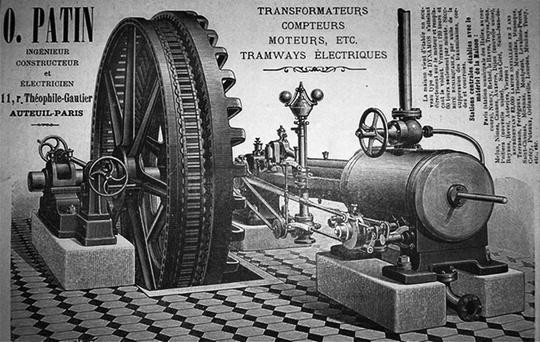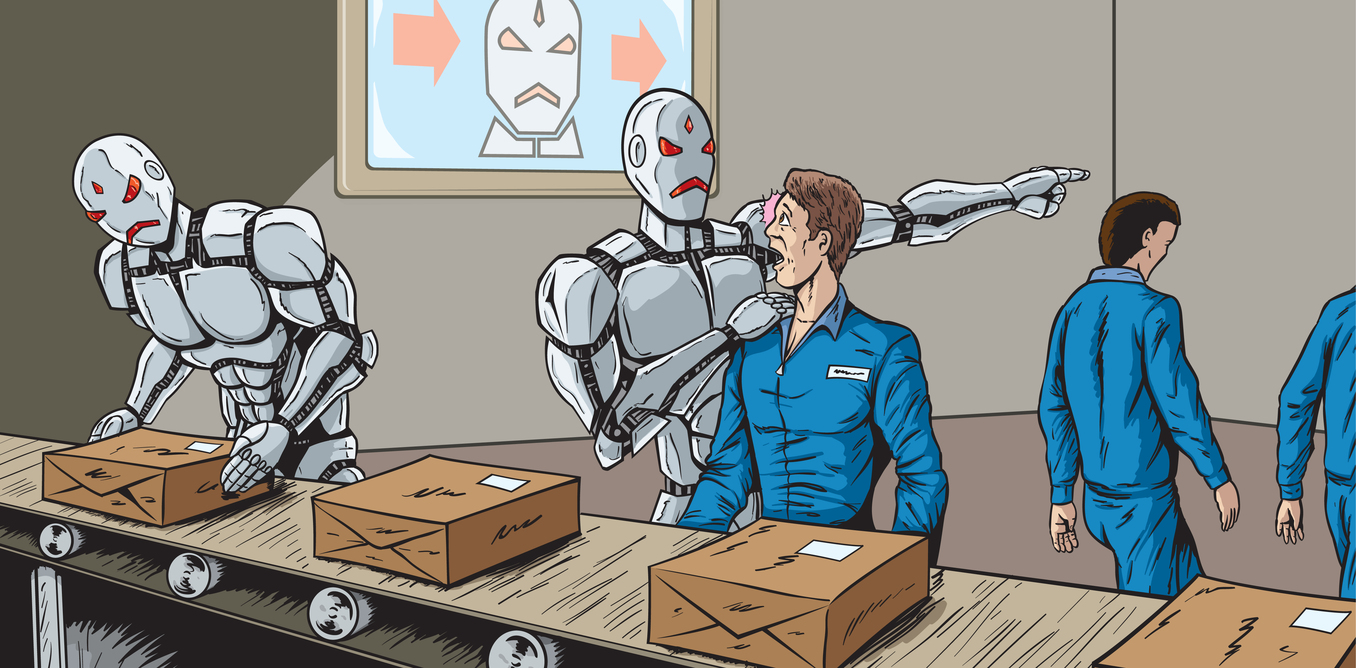Week 3: Robotics + Art
Robotics and Art
The development of machines from the development of the printing press, has been a topic of marvel but also an issue of debate across disciplines. It played a large role in industrialization and the automation of many labor-intensive tasks in factories. Today, improvements in technology includes artificial intelligence that can produce original material and robots that look human, and the progress is yet to down. However, the initial hesitancy against robotics persists.
 |
| The Industrial Revolution |
One of the most important early arguments made against automation was in 1936 by Walter Benjamin. He argued that the authenticity or "aura" of art is depleted by mechanical reproduction. Many people believe creativity in children is hindered by tablets, TVs, and computers. However, by 1995 Douglas Davis contradicted the loss of authenticity that Benjamin described. Davis suggests, instead that the "aura" had been stretched to allow transmission of information and connection across screens. He uses an example of a father journaling his daughter's cancer diagnosis on an online forum, and the comfort and support this allowed him.
 |
| Walter Benjamin |
The efficiency of machines cannot be denied, as is epitomized by the story of Alan Turing told in the film The Imitation Game. Turing was a British scientist who develops a machine to decipher German codes during World War II, which saved multiple lives. His creation is a clear example of the benefits of technology. However, current threats of social surveillance by AI serves as an immediate counter example and rather warns of the dangers of robotics and automation.
 |
| Robots Taking Over |
As the perception of Mary Shelley's Frankenstein, a monster created by a scientist, has evolved, I remain certain that the use of robotics will be debated for centuries. I believe that the use of machines makes human tasks easier to a significant degree and must be allowed to complement our lives, but not take over it.
“The Imitation Game.” YouTube, YouTube, 12 Aug. 2020, https://www.youtube.com/watch?v=qHy1f0yzPVI.
Colby Davis, CFA. “No, Robots Aren't Taking Our Jobs, Yet.” RHS Financial, 27 Apr. 2020, https://rhsfinancial.com/2018/09/24/robots-jobs/.
Davis, Douglas. “The Work of Art in the Age of Digital Reproduction (an Evolving Thesis: 1991-1995).” Leonardo, vol. 28, no. 5, 1995, https://doi.org/10.2307/1576221.
Katie. “Is Technology Killing Creativity?” Rindle, 3 Oct. 2016, https://rindle.com/blog/is-technology-killing-creativity.
Leo Baeck Institute. “Walter Benjamin.” Home - Leo Baeck Institute, 1926, https://www.lbi.org/griffinger/record/208894.
Paz, Emilio Bautista, et al. “Machinery during the Industrial Revolution.” SpringerLink, Springer Netherlands, 1 Jan. 1970, https://link.springer.com/chapter/10.1007/978-90-481-2512-8_7.
Thomas, Mike. “Robots and Ai Taking over Jobs: What to Know about the Future of Jobs.” Built In, 25 Jan. 2023, https://builtin.com/artificial-intelligence/ai-replacing-jobs-creating-jobs.
Vesna, Victoria. “Robotics Intro.” YouTube, 26 Mar. 2012, https://youtu.be/dJcPtv7tnKY.
Walter, Benjamin. “The Work of Art in the Age of Mechanical Reproduction.” Modernism, 2013, https://doi.org/10.4324/9781315833125-38.
Hi Anouska,
ReplyDeleteYour point on the robotics debate is well thought out and brings up an interesting point about perspective and our use of robots. It seems that the technology itself isn't inherently harmful at all, but it is what we use it for. In the same vein, the image you used portrays robots basically replacing people in work. However, why would this be a bad thing? It's only bad because we lack a proper safety net or in broader terms, they're being replaced without any care as to how they'll live after. Robots should replace us when it comes to menial, dangerous, and tasks that robots can do. We have the capability to fill in plenty of positions with robots and we should. Overall I don't think that robots will take over our lives really by any truly total means. But if a robot were to and it was genuinely crafted with humanities best interests in mind, then so be it.